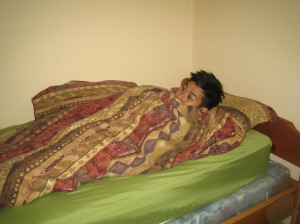Chronic fatigue syndrome is also called myalgic encephalomyelitis (ME) which is a condition that makes a person feel so tired and not capable of performing normal and daily activities. The condition becomes worse when performing physical and mental activities. It affects several systems of the body such as muscle pain, weakness, impaired memory and insomnia.
Some people describe weakness as incapable of moving the arms, legs and other muscles of the body which causes pain or ache that will not go away. If weakness affects only one side of the body, it could be a symptom of another condition such as a stroke and there is a need to seek medical help immediately.
Symptoms
- Experiencing a severe tiredness or fatigue
- Feeling exhausted all the time
- Difficulty in sleeping or waking up and feeling tired or not rested adequately.
- Difficulty with concentration and remembering things.
- There is joint and muscle pain, sore throat and headaches as well as tender glands in the neck or armpits.
- The symptoms become severe after engaging in mental and physical activities and the person feels drained or exhausted.
- The person might end up with depression
Difficulty in sleeping or waking up and feeling tired or not rested adequately.
Causes
- Imbalance of hormones
- Bacterial or viral infection
- Immune system disorders
- Psychiatric problems such as being stressed and emotional trauma
Treatment
- Take advantage of the times when there is more energy and feeling less tired.
- Avoid or minimize overexertion and being subjected to emotional stress. It is vital to for the individual to take breaks every now and then throughout the day.
- The individual should go to bed when sleepy and wake up in the morning at the same time whether or not feeling rested. It is also important to avoid snacks, caffeine, alcohol and nicotine during day time.
- If lying awake for longer than 15 minutes, get up and do something serene such as reading or writing until sleepiness kicks in again.
- Avoid tobacco, alcohol and caffeine before going to bed in order to prevent disruption from sleep. Caffeine is a stimulant that remains in the body for 12 hours.
- Sleep in a bedroom with a comfortable temperature, avoid sounds and light disturbances.
- Make sure that the sleeping mattress can provide good support and use a neck support pillow in order to prevent the head and neck from moving too much during sleeping.
- Take a nap for 20-60 minutes and avoid taking naps late in the day or evening.
- Perform regular light stretching exercises every day such as swimming, walking or riding a bicycle or stationary bike to help with the condition. Avoid performing exercises strenuously since this can lead to exhaustion.
- Take the prescribed pain medications such as acetaminophen and ibuprofen to lessen headaches, muscle and joint pain.
- Eat a well-balanced diet which includes varieties of fruits and vegetable, grains, cereals, poultry, legumes, lean meats and low-fat dairy.

